Search Results
Showing results 61 to 80 of 158

Fossil Rocks
Source Institutions
In this activity, learners will discover how fossils are dug out of the earth by carefully exposing treasures hidden in an artificial rock that is easily made at home.

The Adaptation Game
Source Institutions
To convey the concept of how animals adapt to survive, this game asks learners to imagine what adaptations a given animal would need to live in a certain environment—including environments where such

Cool It
Source Institutions
In this outdoor activity/game, learners use thermometers to simulate how lizards survive in habitats with extreme temperatures.
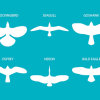
Control a Bird’s Flight
Source Institutions
In this engineering design challenge, learners make a bird and then control its flight with attached strings.
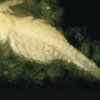
Marine Ecosystems
Source Institutions
In the wild, small crustaceans known as brine shrimp live in marine habitats such as saltwater lakes.

Echolocation Lab
Source Institutions
In this lab, learners experience how dolphins and other echolocating animals use their senses to locate and identify objects without using their sense of sight.
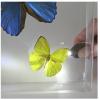
Exploring Structures: Butterfly
Source Institutions
In this activity, learners investigate how some butterfly wings get their color.

Trail Impact Study
Source Institutions
In this outdoor activity, learners plan a simple foot path and create an environmental impact study of the natural area where the path would be.
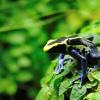
Frog Olympics
Source Institutions
Did you know that a bullfrog can jump a distance of 10 times its body length? Learn more about nature's most acrobatic amphibian, the frog, through this set of short, hands-on activities.

Give or Take?
Source Institutions
In this outdoor activity, learners work in pairs using their senses—especially touch—to learn more about individual trees.

Salt Water Revival
Source Institutions
In this outdoor activity, learners visit the intertidal zone of a rocky coastal site well populated with marine organisms.
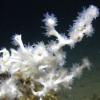
Off Base
Source Institutions
In this activity, learners explore the factors that tend to resist changes in pH of the ocean and why the ocean is becoming more acidic.

Biomimicry: Synthetic Gecko Tape Through Nanomolding
Source Institutions
In this activity/demo, learners examine a synthetic gecko tape with micron sized hairs that mimics the behavior of the gecko foot.
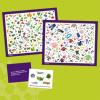
I Spy Nano!
Source Institutions
In this game, learners try to find nano-related objects on a game board. Learners investigate the different ways nano is in the world around us.

Monitoring Amphibians
Source Institutions
In this field study, learners discover how to collect data in the field and how their efforts can help certain animals, specifically, amphibians.
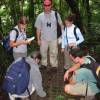
Creating a Local Field Guide
Source Institutions
In this activity, learners survey living organisms near where they live or go to school, and create a local field guide.
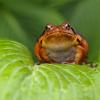
Soak It Up: Understanding Amphibian Permeability
Source Institutions
In this activity, learners will discover how the thin layers of amphibians' skin allow water and other chemicals to pass through it.

Can Fishing
Source Institutions
In this outdoor activity, learners go "can fishing" and discover the kinds of aquatic organisms that live in and on submerged cans.
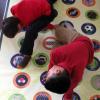
Exploring Size: StretchAbility
Source Institutions
In this game, learners explore the different sizes of things in the world. In this Twister-like game, learners must place a hand or foot on a circle of the right scale - macro, micro, or nano.
Butterflies in Space
Source Institutions
The Butterflies in Space Teacher's Guide uses "life in space" to encourage learners to conduct their own open-ended scientific investigations.
